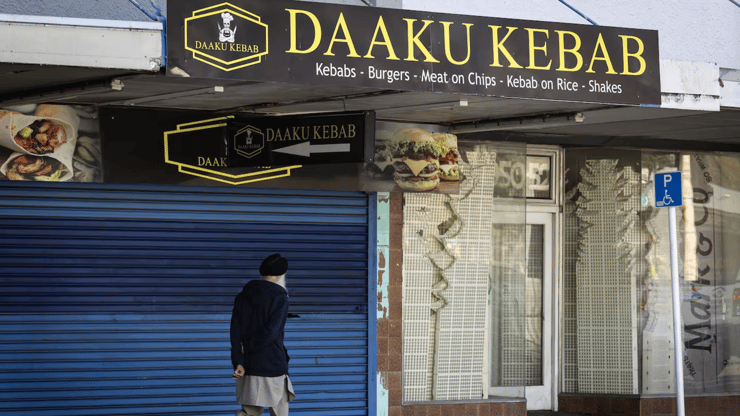Indian Migrant Workers Allege Slave-Like Conditions At Auckland Restaurant

A group of 19 Indian migrant workers claim they are subjected to slave-like conditions, working up to 17 hours per day without pay at Auckland's Daaku Kebab restaurant chain, The New Zealand Herald reported.
These workers report paying between $26,000 and $60,000 for work visas, which they now believe have entrapped them. The men have sought assistance from Sikh temples, which are providing them with groceries. Daljit Singh, spokesperson for the Supreme Sikh Society, stated the workers are "not in a good shape mentally."
The Ministry of Business, Innovation and Employment (MBIE) has confirmed receiving complaints about alleged migrant exploitation at Daaku Kebab, referring the matter to its investigations team.
Daaku Kebab operates five outlets across Auckland. One of its directors, known only as Sourav, has denied the allegations, calling them "baseless."
Khawaish Singh, 24, stated he paid $26,000 for his visa and a job at Daaku Kebab but claims he received no payment during the first two months, despite working 17-hour days. He, along with Partab Singh, 26, Narender Singh, 33, and Harsh Singh, 27, live in a shared basement in Papatoetoe, relying on food and groceries from the Sikh temple.
Khawaish reported working from 11 am to 4 am under "training" conditions, receiving only meals as compensation. He said he began receiving pay in September but never received payslips to confirm his hourly rate.
His co-workers echoed similar grievances, alleging long hours and minimal to no pay after paying substantial sums for their visas. Harsh Singh claimed he paid $60,000 with the promise of becoming a shareholder. He alleges threats from the company when he requested a proper salary to repay his loan.
Sourav has denied all allegations and stated, "These allegations are all denied, but under legal advice I am unable to comment further whilst an investigation is underway." He attributed the issues to "a personal matter concerning families back home in India," and accused some employees of misconduct.
Sourav has also reached out to the workers to settle their outstanding dues and minimum employment entitlements, but claims they have not responded. He has also indicated plans to sell the business due to financial difficulties.
In emails dated June 17 and June 12, Sourav expressed a desire to resolve the employment dispute and provided the workers with a two-week notice to find new jobs or alternatives.
Daljit Singh from the Supreme Sikh Society stated that 19 workers linked to Daaku Kebab had sought help from Sikh temples in Papatoetoe and Takanini. He believes the workers were "scammed," paying for a pathway to residency and a stake in the business.
James Friend, MBIE acting national manager investigations, confirmed that the complaints are being investigated but declined to comment further to protect the integrity of the ongoing investigation.
The workers who spoke to the Herald are eligible to apply for the Migrant Exploitation Protection Visa, part of a larger issue within Immigration New Zealand’s accredited employer work visa (AEWV) scheme. As of June 3, Immigration had approved 120,472 AEWV applications, with 35,264 accredited employers using the scheme. Currently, there are 255 active investigations involving 246 accredited employers, with 366 having had their accreditation revoked or suspended.
The extent of exploitation within this scheme and its impact on migrant workers remains unclear





